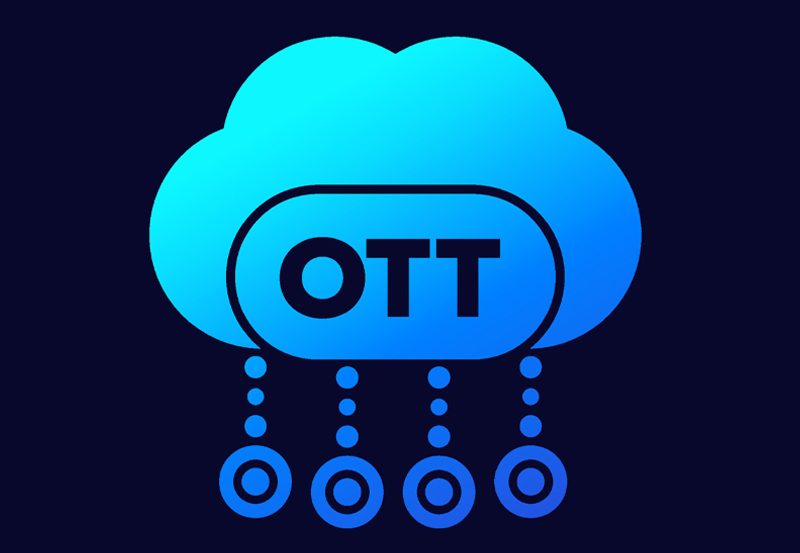In 2024, IPTV is poised for significant advancements, with several key trends shaping its future. The adoption of 4K and 8K resolution content is expected to increase, offering viewers enhanced visual quality and detail. This shift will necessitate infrastructure upgrades for IPTV providers to support higher resolutions, ultimately delivering a more immersive viewing experience.
Artificial intelligence and machine learning algorithms are becoming increasingly integrated into content recommendation systems. These technologies enable real-time analysis of viewer preferences and habits, resulting in more accurate and personalized content suggestions. This development aims to reduce time spent searching for content and increase viewer satisfaction.
The integration of virtual reality (VR) and augmented reality (AR) technologies into IPTV platforms is anticipated to create more interactive and immersive experiences. These technologies have the potential to transform passive viewing into participatory engagement with content. The rollout of 5G networks is expected to significantly impact IPTV services.
Faster and more reliable connections will enable improved streaming quality across various devices, including smartphones, tablets, and smart TVs, potentially expanding the reach and accessibility of IPTV services.
Key Takeaways
- The future of IPTV is expected to be shaped by emerging trends such as 5G integration, personalized content recommendations, interactive advertising, and virtual reality experiences.
- To get started with IPTV, you will need a stable internet connection, a compatible device such as a smart TV or set-top box, and a subscription to an IPTV service provider.
- Improve your IPTV viewing experience by optimizing your internet connection, using a wired connection instead of Wi-Fi, adjusting video settings, and regularly updating your IPTV app or software.
- When choosing the best IPTV service, look for factors such as channel selection, video quality, customer support, compatibility with different devices, and reliable streaming performance.
- Understanding the impact of IPTV on your internet connection is crucial, as streaming high-definition content can consume a significant amount of bandwidth and potentially affect other online activities.
- Predictions for the evolution of IPTV technology include advancements in video compression, enhanced user interfaces, integration with smart home devices, and the rise of cloud-based IPTV services.
- Protect your data and privacy when using IPTV by using a secure and reputable IPTV service provider, being cautious of phishing scams, and using a virtual private network (VPN) for added security.
IPTV Setup Guide: How to Get Started with IPTV
Accessing IPTV on Your Devices
Many IPTV providers offer apps for popular streaming devices such as Amazon Fire TV, Apple TV, and Roku, making it easy to access your IPTV service on your television. If you prefer to watch IPTV on your smartphone or tablet, you can download the provider’s app from the App Store or Google Play Store and log in using your account credentials. Some IPTV providers also offer web-based platforms that allow you to access their service through a web browser on your computer.
Enjoying Your IPTV Service
Once you’ve set up your account and downloaded the necessary apps, you can start enjoying your favorite TV shows, movies, and live sports events through your IPTV service. It’s important to note that you’ll need a stable internet connection to enjoy IPTV without buffering or interruptions. For high-quality streaming, a broadband connection with a minimum speed of 15 Mbps is recommended.
Optimizing Your IPTV Experience
Additionally, if you plan to watch IPTV on multiple devices simultaneously or in different rooms of your home, you may need a router that supports dual-band or tri-band Wi-Fi to ensure a reliable connection throughout your home.
Optimizing Your IPTV: Tips for Improving Your Viewing Experience
To optimize your IPTV viewing experience, there are several tips and tricks you can use to ensure smooth and high-quality streaming. First and foremost, it’s essential to have a reliable and high-speed internet connection. A wired Ethernet connection is generally more stable than Wi-Fi, so if possible, connect your streaming device directly to your router using an Ethernet cable.
If you must use Wi-Fi, make sure your router is placed in a central location in your home to ensure a strong signal throughout. Another way to optimize your IPTV experience is to use a modern and capable streaming device. While many smart TVs have built-in IPTV apps, dedicated streaming devices such as Amazon Fire TV, Apple TV, or Roku offer better performance and more features for IPTV streaming.
These devices often support higher resolutions and have more powerful processors, resulting in smoother playback and faster navigation through menus and channels. Additionally, consider upgrading your TV or monitor to a 4K resolution display if you haven’t already done so. Many IPTV providers offer 4K content, which provides a much sharper and more detailed picture compared to standard high-definition content.
Finally, if you’re experiencing buffering or stuttering during playback, try reducing the number of devices connected to your network or limiting bandwidth-heavy activities such as large file downloads or online gaming while watching IPTV.
Choosing the Best IPTV Service: What to Look for in a Provider
When choosing an IPTV service, there are several factors to consider to ensure you’re getting the best possible experience. First and foremost, consider the channel lineup offered by each provider and make sure it includes the channels and content you’re interested in. Some providers offer specialized packages for sports, movies, or international channels, so be sure to choose a provider that aligns with your viewing preferences.
Another important consideration when choosing an IPTV service is the quality of the streaming experience. Look for providers that offer high-definition and 4K content, as well as support for multiple devices and simultaneous streams. Additionally, consider the user interface and features offered by each provider’s app or platform, such as cloud DVR functionality, on-demand content, and personalized recommendations.
It’s also essential to consider the reliability and stability of each provider’s service. Look for reviews and testimonials from other users to gauge the overall quality of each provider’s streaming experience. Additionally, consider the level of customer support offered by each provider, as well as their policies regarding refunds, cancellations, and technical support.
Finally, consider the cost of each provider’s subscription plans and any additional fees or hidden costs that may be associated with their service. While it’s important to find a provider that offers a competitive price, be wary of providers that offer significantly lower prices than their competitors, as this may be indicative of lower-quality service or unreliable streaming.
IPTV Bandwidth: Understanding the Impact on Your Internet Connection
IPTV streaming requires a significant amount of bandwidth to deliver high-quality video content without buffering or interruptions. The amount of bandwidth required for IPTV can vary depending on several factors, including the resolution of the content being streamed, the number of devices connected to your network, and any other activities that may be using bandwidth simultaneously. For standard-definition content, a minimum internet speed of 5 Mbps is recommended for smooth streaming.
For high-definition content, a speed of at least 10 Mbps is recommended, while 4K content may require speeds of 25 Mbps or higher for optimal performance. Keep in mind that these are general guidelines, and actual bandwidth requirements may vary based on the specific encoding and compression methods used by each IPTV provider. It’s also important to consider the impact of multiple devices on your network when streaming IPTV.
If several devices are connected to your network simultaneously and using bandwidth for activities such as online gaming, video calls, or large file downloads, this can affect the quality of your IPTV streaming. To ensure a reliable streaming experience, consider upgrading to a higher-speed internet plan or implementing quality of service (QoS) settings on your router to prioritize IPTV traffic.
The Future of IPTV: Predictions for the Evolution of IPTV Technology
Convergence of Traditional TV and Internet Streaming
One major trend that is likely to shape the future of IPTV is the increasing convergence of traditional television broadcasting and internet-based streaming services. As more consumers cut the cord and turn to streaming services for their entertainment needs, traditional broadcasters are likely to embrace IPTV technology as a means of reaching new audiences and delivering content in innovative ways.
Personalized and Interactive Viewing Experiences
Another prediction for the future of IPTV is the continued expansion of interactive and personalized viewing experiences. As artificial intelligence and machine learning algorithms become more sophisticated, IPTV providers will be able to offer highly personalized recommendations and interactive features that cater to individual viewer preferences. This may include interactive advertisements, personalized content channels, and immersive viewing experiences that leverage virtual reality and augmented reality technologies.
Cloud-Based Infrastructure Advancements
Furthermore, advancements in cloud-based infrastructure are likely to play a significant role in shaping the future of IPTV technology. Cloud-based streaming platforms offer scalability, flexibility, and cost-efficiency for IPTV providers, enabling them to deliver high-quality content to a global audience without the need for expensive hardware or infrastructure investments. This will result in a more diverse range of content offerings and improved accessibility for viewers around the world.
IPTV Security: Protecting Your Data and Privacy in the Age of Streaming
As streaming services continue to grow in popularity, it’s essential for consumers to be aware of potential security risks associated with IPTV technology. One of the most significant security concerns related to IPTV is the potential for unauthorized access to copyrighted content through illegal streaming services or pirated IPTV subscriptions. Not only does this pose legal risks for consumers who engage in piracy, but it also exposes them to potential malware and security threats from untrustworthy streaming sources.
To protect your data and privacy when using IPTV services, it’s essential to choose a reputable and legitimate provider that complies with copyright laws and content licensing agreements. Be wary of providers that offer suspiciously low prices or access to premium content without proper licensing or authorization. Additionally, be cautious when using third-party apps or add-ons that claim to provide free access to paid content, as these may expose your device to security vulnerabilities or compromise your personal information.
Another important aspect of IPTV security is protecting your personal data from unauthorized access or misuse by third parties. When signing up for an IPTV service, be sure to review their privacy policy and terms of service to understand how they collect, store, and use your personal information. Look for providers that offer robust encryption protocols and secure authentication methods to protect your account credentials and payment information from unauthorized access.
In conclusion, as we look towards the future of IPTV technology in 2024 and beyond, it’s clear that the industry is poised for significant growth and innovation. With emerging trends such as higher resolution content, artificial intelligence integration, virtual reality experiences, and 5G technology on the horizon, viewers can expect an increasingly immersive and personalized viewing experience. By following best practices for setting up and optimizing your IPTV service, choosing a reputable provider with a reliable streaming experience, understanding the impact of bandwidth on your internet connection, staying informed about future technology predictions, and prioritizing security measures to protect your data and privacy while streaming content online – consumers can make the most out of their IPTV experience while staying safe in an ever-evolving digital landscape.
For more information on the latest trends in IPTV, check out this article on The Top 5 IPTV Services of 2024. This article provides a comprehensive overview of the leading IPTV services available in 2024, offering insights into their features, pricing, and customer satisfaction. It’s a must-read for anyone interested in staying up to date with the rapidly evolving world of IPTV.






